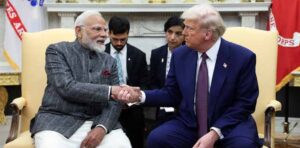VW is aiming for leadership in global auto markets, backed by timely expansions in China and Latin America as well as its dominance in Europe. But it keeps struggling in North America.
It swapped U.S. chiefs a year ago, disappointed by the results of a push into competitive midsize sedans assembled at a $1 billion factory in Tennessee. U.S. sales of VW brand cars have dropped 16 percent since 2012.
To fight back, the company plans to triple its product range in the fast-growing crossover segment and refresh models more quickly, company sources said.
The campaign will include a five-seat variant of the forthcoming midsize sport-utility vehicle (SUV), a concept version of which VW will unveil on Monday at the Detroit auto show, the sources said.
VW is also stepping up cooperation with dealers and assembling a team of 200 experts in R&D and design at its U.S. plant to ensure vehicles better cater to American tastes.
“It took us long to realize that the U.S. market requires more special attention,” a senior manager at VW’s German headquarters said on condition of anonymity.
“You have to have an ear on the ground to capitalize on trends and customer desires.”
Michael Horn, VW’s new U.S. chief, has reduced the product lifecycle from seven to five years for sedans and is planning similar changes for SUVs, one source said.
“It’s the game you have to play in the hype-heavy U.S. market,” the source said.
VW’s past failings mean it will miss an 800,000 U.S. sales target for 2018, according to researchers IHS Automotive. They see 547,000 sales of VW-brand cars by then, from last year’s 367,000, missing the goal by about a third.
IHS forecasts include VW’s plans to overhaul the Tiguan compact SUV in 2015 and add a coupe-style version as well as a long-wheelbase model that may offer a petrol-electric hybrid version.
U.S. compact SUV sales rose to about 1.49 million last year from 964,000 in 2009, while midsize SUVs grew to 1.69 million from 946,000, according to auto website Edmunds.com.
But VW won’t benefit from the boom until new products arrive in 2016-17, said Evercore ISI analyst Arndt Ellinghorst, noting existing Tiguan and Touareg models cost more than rivals.
Also, Toyota and Mazda, buoyed by the weak yen, will keep pushing into passenger cars, VW’s traditional area of strength, he said. (Reuters)




Leave a Comment